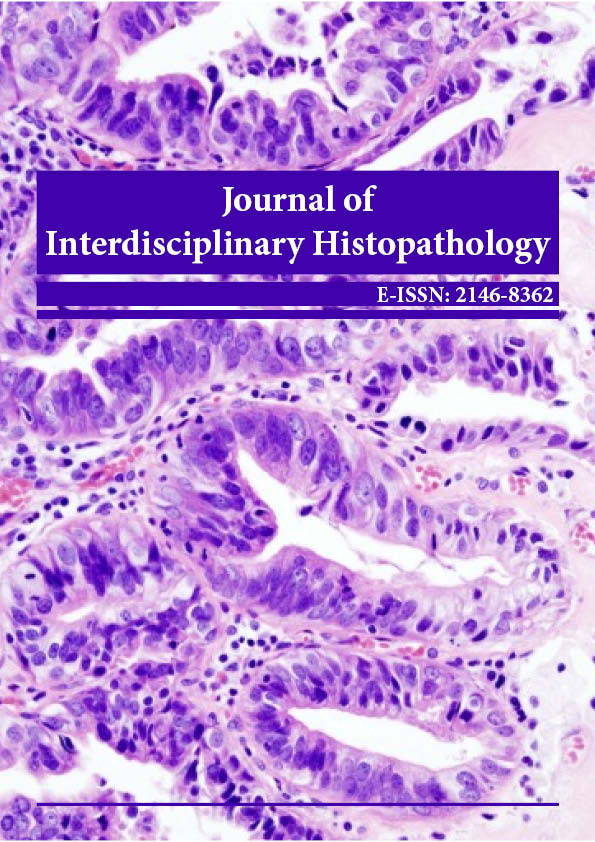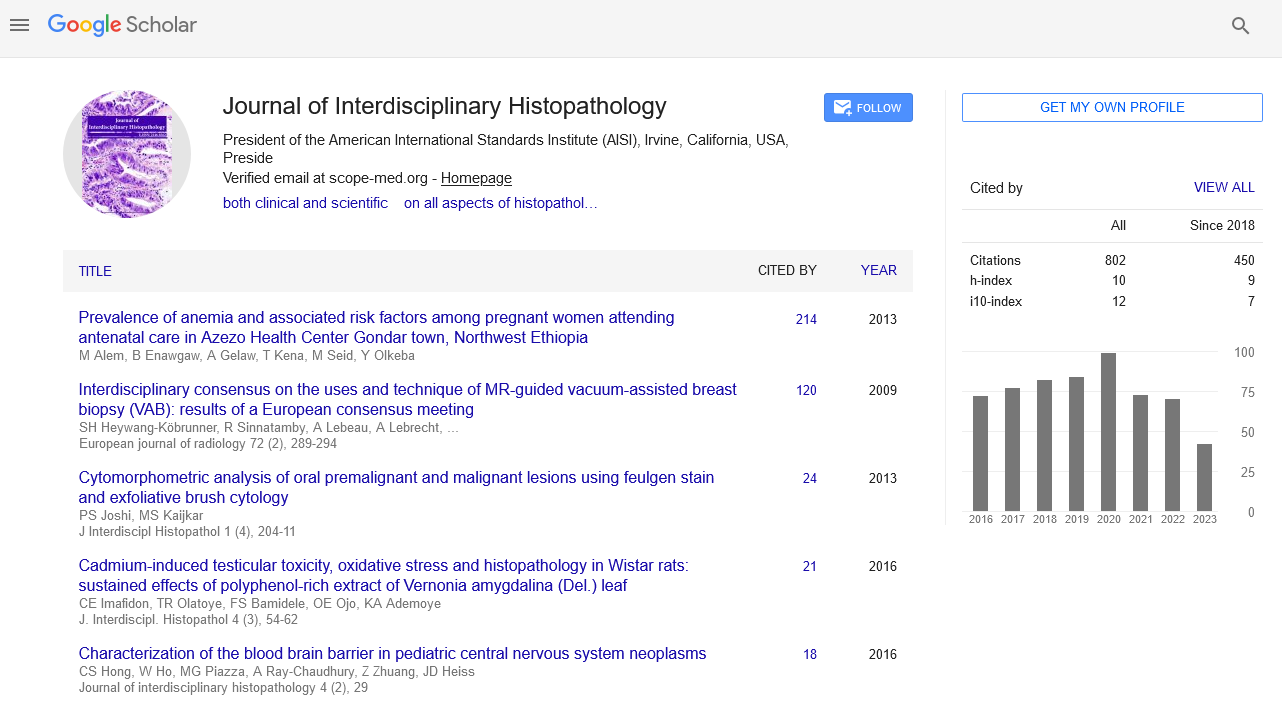Opinion - Journal of Interdisciplinary Histopathology (2023)
Role of Intestinal Stem Cells in Understanding Intestinal Diseases and Developing Potential Therapeutic Strategies
Jean Krebs*Jean Krebs, Department of Haematology, Princeton University, Princeton, USA, Email: krebs@gmail.com
Received: 27-Nov-2023, Manuscript No. EJMJIH-23-122921 ; Editor assigned: 29-Nov-2023, Pre QC No. EJMJIH-23-122921 (PQ); Reviewed: 14-Dec-2023, QC No. EJMJIH-23-122921 ; Revised: 22-Dec-2023, Manuscript No. EJMJIH-23-122921 (R); Published: 29-Dec-2023
Description
Intestinal Stem Cells (ISCs) are a crucial component of the intestinal epithelium, playing a fundamental role in maintaining the homeostasis and regenerative capacity of the intestinal lining. The intestinal epithelium, which lines the inner surface of the small and large intestines, serves as a protective barrier and is constantly exposed to various challenges, such as mechanical forces, microbes, and dietary components. ISC activity is essential for the continuous renewal of the intestinal epithelium, ensuring its integrity and functionality.
ISCs are primarily located in the crypts of Lieberkühn, invaginations present in the lining of the small intestine and colon. These stem cells give rise to the diverse cell types that constitute the intestinal epithelium, including absorptive enterocytes, mucus- secreting goblet cells, hormone-producing enter endocrine cells, and Paneth cells, which contribute to the innate immune defence.
One of the remarkable features of ISC biology is their ability to undergo self-renewal, generating both identical stem cells and committed progenitor cells that eventually differentiate into the various specialized cell types of the intestinal epithelium. This process is tightly regulated to maintain the balance between self-renewal and differentiation, ensuring the continuous replenishment of the epithelial cell population.
The Wnt (Wingless-related integration site) signalling pathway plays a central role in regulating ISC function. Wnt ligands produced by neighbouring cells in the intestinal crypts activate the Wnt pathway, leading to the stabilization and nuclear translocation of β-catenin. This, in turn, initiates the expression of target genes involved in ISC maintenance and proliferation. Disruption of the Wnt pathway can significantly impact ISC function and lead to impaired regeneration of the intestinal epithelium.
In addition to the Wnt pathway, other signalling pathways, such as the Notch and BMP pathways, also contribute to the regulation of ISC behaviour. The dynamic interplay between these signalling cascades ensures the proper balance between ISC self-renewal and differentiation. The complex and coordinated regulation of these pathways is essential for maintaining intestinal homeostasis and responding to various physiological and pathological challenges.
ISCs play a critical role in responding to injury and promoting tissue repair in the intestine. In the face of damage, such as exposure to toxins or inflammation, ISCs are activated to undergo rapid division and differentiation to replace damaged or lost cells. This regenerative capacity is essential for preserving the barrier function of the intestinal epithelium and preventing the translocation of harmful substances from the gut lumen into the bloodstream.
The study of ISC biology has significant implications for understanding intestinal diseases and developing potential therapeutic strategies. Dysregulation of ISC function has been implicated in various gastrointestinal disorders, including Inflammatory Bowel Diseases (IBD) and colorectal cancer. In IBD, there is evidence of impaired ISC function, contributing to chronic inflammation and compromised epithelial integrity. In colorectal cancer, mutations in key signalling pathways that regulate ISC behaviour can lead to uncontrolled cell proliferation and tumour formation.
Emerging research also explores the potential use of ISC-based therapies for intestinal disorders. Strategies aimed at enhancing ISC function or transplanting exogenous stem cells show promise in
promoting tissue repair and regeneration. However, challenges remain in fully harnessing the therapeutic potential of ISC-based approaches, including ensuring the safety and efficacy of such interventions.
In conclusion, intestinal stem cells are central players in the dynamic and highly regulated process of intestinal epithelial renewal. Their ability to self-renew and generate diverse cell types is crucial for maintaining the integrity and functionality of the intestinal lining.
Understanding the intricate mechanisms that govern ISC behaviour not only sheds light on fundamental aspects of stem cell biology but also holds the key to developing novel therapeutic strategies for intestinal disorders and promoting gastrointestinal health. Ongoing research in this field continues to unveil the complexities of ISC biology and its implications for both health and disease.






